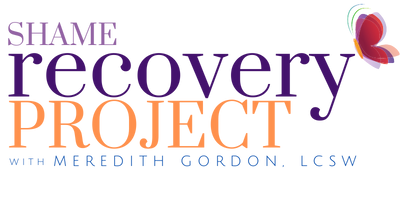How the narcissist perceives rejection is outlined in new reserearch. Science proves what you likely already know—that narcissists react poorly to the slightest hint of rejection. Read about what you can do to help yourself if you’re dealing with such a person.
Honeymoons don’t last. With a narcissist, you think the honeymoon is what you’re longing for, especially when things sour. But with narcissists, there was never a honeymoon. Let that sink in. This is often the case in an “intimate” (or rather, sexual) relationship with a narcissist. But it’s also the case in families and “friendships” and in the workplace.
If you are not a narcissist, this may be hard to conceive. But it’s important that you try to understand it.
Blinded By Their “Realness”? Well, It’s Not Real
In the beginning, particularly when there is a strong physical attraction, we tend to see the terrific parts of the other person’s personality, too. This “seeing the best in the other” can actually be us projecting our finer qualities onto the other person. I call this reverse projection.
With a narcissist, you are not seeing the real person or any authentic traits. You are not seeing them because the narcissist is unformed and uninterested in shaping an authentic self.
What you are seeing is a reflection of you—some aspect of you—back to you. Basically, the narcissist person is feeding off of your genuine traits. A feast, so to speak.
Narcissists Are Perpetually Ravenous
At some point in a healthy relationship, both parties will acknowledge their own assets and liabilities (we hope) and move forward as two individuals coming together in a union with each remembering or being willing to discover the individual that they are. The alternative is one feeding off the other, which is what’s happening when you are involved with a narcissist. This is where the term “narcissistic supply” comes from.
According to research published in Frontiers in Psychology (Reis, S., Huxley, E., Eng Yong Feng, B., & Grenyer, B. [2021]), “Results indicated that those high in pathological narcissistic vulnerability reported greater insecurity in attachment, negative trait emotional reactivity, and experienced a more negative and intense emotional reaction to rejection.” This may mean that when the individual senses you pulling away—which can also be experienced as you seeing them as human and not god-like—they will react in varying negative ways designed to hurt and demean you.
You may begin to notice signs of trouble when you take back your own assets (a.k.a. the things you like about yourself, your personal gifts, what you do well, etc.)—even if you only acknowledge this step to yourself and never mention it aloud to the narcissistic person. Taking back or owning your assets simply means you have stopped “seeing” and projecting them onto the other person (so, ceasing the reverse projection). By this, I mean becoming aware. In fact, awareness of the tendency to project your gifts onto others is the goal. The narcissistic person is extremely sensitive to what affects them. They will notice the withdrawal. But they are often insensitive to what affects you. They see you only as an extension of themselves, the part that serves their needs.
The narcissistic person will sabotage, pout, or be rude, cold, or mean when they detect a lack of supply. Conversely, they might also become obsequious or try to make nice before they come down hard. Narcissists need the reverse projection; it makes them look better both in their self-view and, yes, out there in the world—until the facade begins to crack. One reason the facade visibly cracks is the withdrawal of supply (from you).
They Feed and Feed But Never Get Full
That may not stop the narcissistic person from continuing to “wear” your assets (the one you unwittingly projected—it’s very common… trust me!) as his or her own mask and will experience your assets as his or her own. Then, when you attempt to own them again–say you write that paper or make that piece of art or compose that song or cook the meal or hike the peak or meet the person you’d wanted to meet—or whatever it is) he or she might (will likely) say that you are copying them, stealing from them, trying to be like them and secretly wish you were them.
Once this happens, you may become the object of the narcissist’s rage (which can be very loud or icily quiet) and soon find yourself apologizing, because this rage (again, loud or quiet) can be frightening and intolerable. You may feel shamed and ashamed of yourself.
What You Can Do to Extract Yourself from More Damage
Learning how narcissists feed off others (you!) is key. Everything from getting knowledgeable about the patterns of behaviors over time and dissecting how you were affected matters. The more you decode, the less you will feel like you are losing your mind. The more perspective you get, the better.
References
Reis, S., Huxley, E., Eng Yong Feng, B., & Grenyer, B. (2021). Pathological Narcissism and Emotional Responses to Rejection: The Impact of Adult Attachment. Frontiers in psychology, 12, 679168. https://doi.org/10.3389/fpsyg.2021.679168
Photo by Markus Winkler on Unsplash
